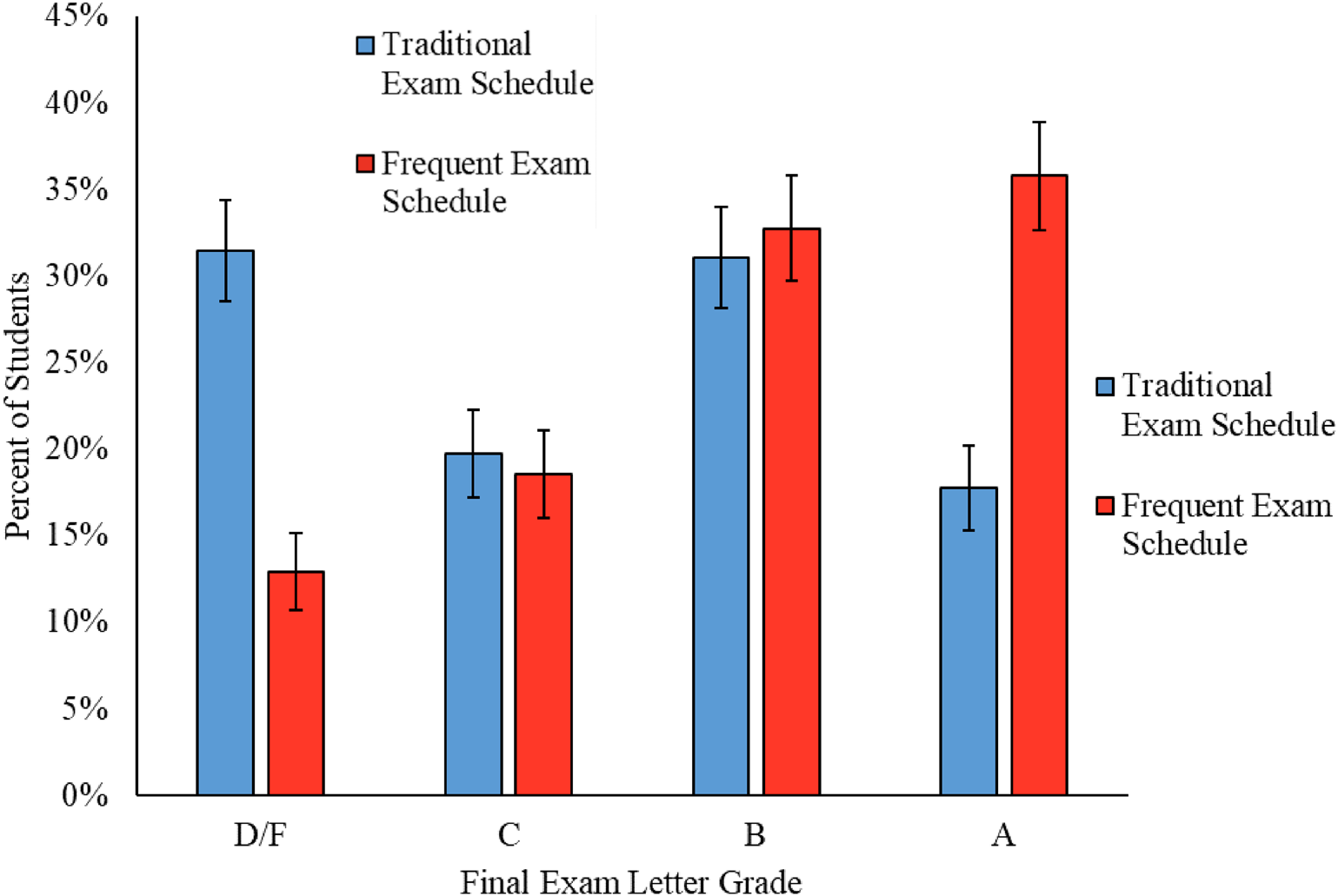Research in engineering education shows that frequent assessments help with long-term retention of course content. Moreover, by giving students instant feedback during these assessments, they have the opportunity to promptly identify their strengths and weaknesses, seek help, or change their study strategies for following assessments. To study the effect of frequent testing, in Fall 2015 I changed my exams from summative assessments (two midterms and a final exam) to a hybrid approach that incorporates aspects of formative assessments (7 bi-weekly quizzes and a final exam). The bi-weekly quizzes were offered at a computer-based testing facility (CBTF) where students had immediate feedback of their performance. I compared the scores of the same final exam in two different semesters, before and after the exam schedule change. Results from the final exam indicated that students who completed seven short assessments over the course of the semester scored higher on the final exam than students who completed two longer mid-term examinations, and they were twice as likely to receive a perfect score on the multiple-choice section of the exam. These results match research data from other fields, which shows that shorter and more frequent assessment opportunities are beneficial for student learning and long-term retention of the material.

Morphew J., Silva M., Herman G., West M. (2019), “Frequent mastery testing with second-chance exams leads to enhanced student learning in undergraduate STEM”, Applied Cognitive Psychology.